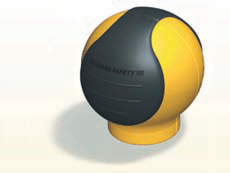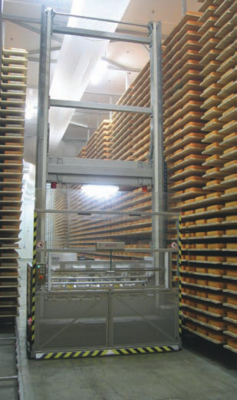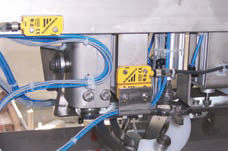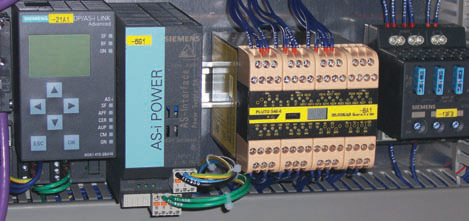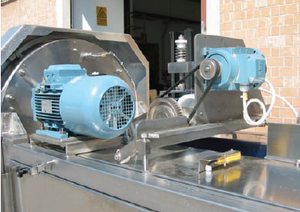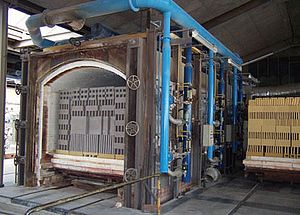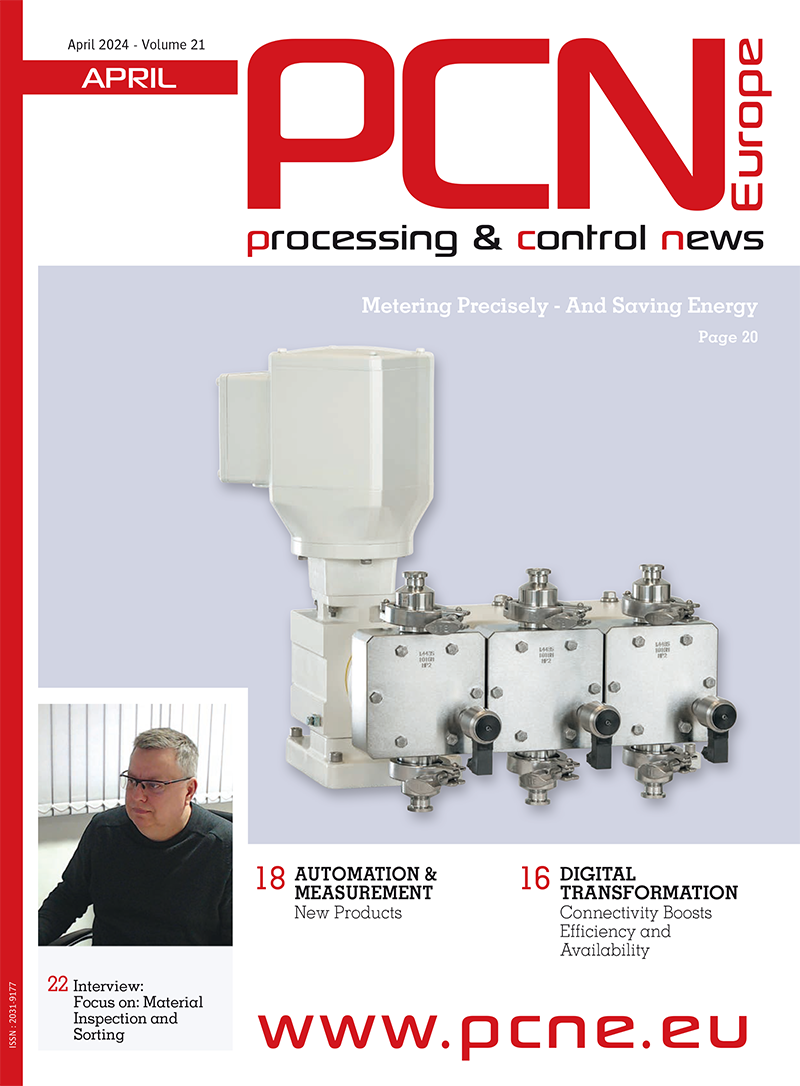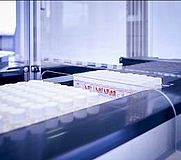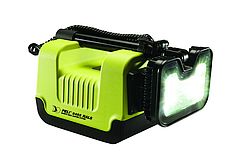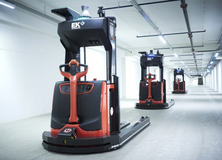LEU Anlagenbau, a swiss manufacturer of cheese care robots and cheeses slicing machines uses safety PLCs, two-hand control devices and non-contact sensors to ensure the safety and reliability of their devices
Since 1991, the company LEU Anlagenbau AG, located in Uetendorf south of Bern, has been manufacturing and selling cheese care robots and cheese slicing machines. Their safety has been based on the Pluto safety PLC, Safeball two-hand devices and Eden non contact sensors since 4 years. The technology introduced in 2005 has proven its reliability in the particularly humid, ammoniacal atmosphere and provides reliable operator protection as well as the saving of a great number of relays and susceptible mechanical switches. In addition, it simplifies wiring and saves space in the control cabinet.
For the development of its full taste, the cheese must ripen for a certain time. Thereby, it is necessary to turn it round and/or upside down periodically and to brush it with salt water. The cheeses are stored and treated up to 2 years. This gives birth to popular varieties of cheese with a strong, aromatic taste such as Emmental, Appenzell, Gruyère, Tilsit, Tête de Moine, Raclette and different mountain cheeses.
Mobile cheese-care robots
The mobile cheese-care robots LK-40 can be moved within the cellar without expenditure of force. The travel drive is powered by batteries, and the robot is steered with a draw-bar, similar to a fork-lift truck. The robot can be placed and started in any position along a bank row. Without manual help, it patiently treats the predetermined cheeses day and night. Several different orders can be executed one after the other. A robot can treat up to 80 big Emmental cheeses per hour. With the smallest cheeses, the next cheese is whirled through the quick machine every 2 seconds.
For the care, the cheeses are searched for on the shelves using a special sensor solution. Since the young cheeses are still very sensitive, the machine must be taught to work with great care. The machine carefully transports the cheese into the care station. After turning, the cheeses are placed on a rotary table and moved under the brushes. The surface and the side are then brushed with salt water or a special salt solution. After that, the cheeses are put back on the empty board.
Storage and withdrawal from storage
Using a cheese care robot and simple auxiliary devices, it is possible to transport cheeses into and out of the storage rooms. Therefore, in the case of a raclette machine, a special working table is installed on the front of the machine. For the storage, the boards are made available on this table, and three cheeses are placed on the board. After the lifting gear has driven into the right position, the loading door opens. The board with the cheeses is pushed into themachine by hand. During this period, the Eden safety sensors monitor that the table does not move. Otherwise, the safety control would immediately generate an emergency stop. As soon as the door is safely closed again, the safety control releases the lifting gear, and the board can be placed in any free position.
For the withdrawal, the procedure is in the opposite direction. A random board with cheeses is taken out of the shelves, and then the lifting gear drives to the handover position. The loading door opens and the board is pushed on the working table. After the release, the loading door closes and the next board is fetched. Here too, the safety sensors make sure that all doors are opened or closed in time and that the user can grip into the machine without any risk.
Cheese slicing machine LS-40
The cheese slicing machine LS-40 was designed for cheeses with diameters of up to 40 centimetres and can perform up to 30 cuts per minute. But when changing the cheese, dangerous situations for the user can occur. The safe operation is ensured by the safety control and several safety sensors. The doors, hatches and cutting tool are monitored by several non-contact safety sensors Eden. Their dynamic output signals are evaluated in a Pluto S20 safety PLC, depending on the actual working situation. In case of a malfunction of the conventional control or an improper handling of the user, the cutting installation is stopped immediately and reliably.
Positive experiences
The electrical engineer Thomas Kilchenmann, responsible for the control design, appreciates above all the Pluto safety PLC with its compact dimensions and freely programmable in and outputs. Depending on the situation, they can be programmed as safe inputs or as auxiliary outputs. The benefit of the detachable connector blocks is that they greatly simplify the wiring and the exchange. Since several controls can be networked via the Pluto-B bus, the compact control has virtually no limits even for greater tasks. The control specialist finds the programming tool Pluto Manager very practical and flexible and wants to use more of the AS-i solutions from Jokab Safety in the future.
The robust two-hand control device Safeball can also be reliably operated in the harsh environment of the cheese cellar. Cold, humidity and hands smeared with cheese cannot affect its safe operation. Kilchenmann sees the main advantages of the Eden safety sensors with a dynamic output signal in their high protection classes IP67 and IP69K, in the long sensing distance, in the various mounting possibilities, and in the clear LED status indication. Even when connecting several Eden in series, it can be quickly recognised which door is open. Additional advantages are high reliability, long life, world-wide presence and supply of spare parts as well as the approvals for Europe, North America and Asia.
Safety PLC monitors automated cheese care
LEU Anlagenbau, a swiss manufacturer of cheese care robots and cheeses slicing machines uses safety PLCs, two-hand control devices and non-contact sensors to ensure the safety and reliability of their devices
- by Jokab Safety AB
- April 12, 2010
- 245 views


